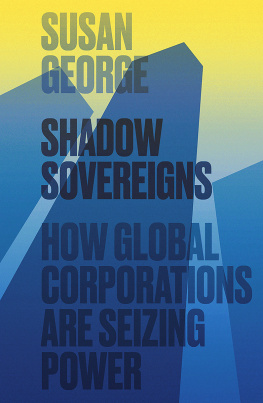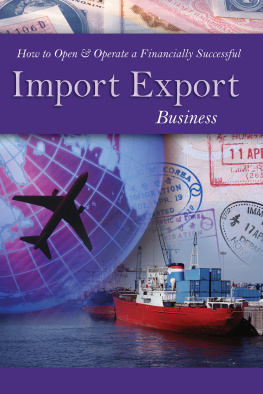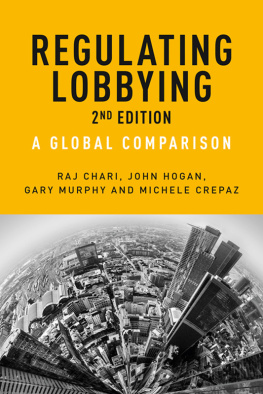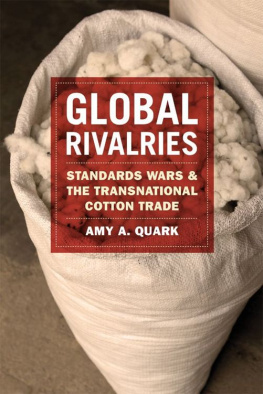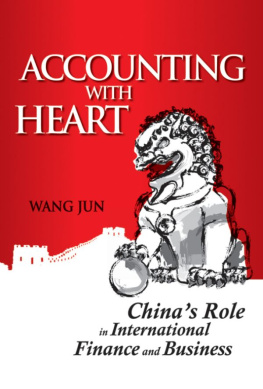Contents
Guide
Print Page Numbers

Dedication
To Nick
SHADOW SOVEREIGNS
How Global Corporations Are Seizing Power
Susan George
polity
Copyright Susan George 2015
The right of Susan George to be identified as Author of this Work has been asserted in accordance with the UK Copyright, Designs and Patents Act 1988.
This book first published in French under the title Les Usurpateurs: Comment les entreprises transnationales prennent le pouvoir, Le Seuil, Paris, 2014
First published in English in 2015 by Polity Press
Polity Press
65 Bridge Street
Cambridge CB2 1UR, UK
Polity Press
350 Main Street
Malden, MA 02148, USA
All rights reserved. Except for the quotation of short passages for the purpose of criticism and review, no part of this publication may be reproduced, stored in a retrieval system, or transmitted, in any form or by any means, electronic, mechanical, photocopying, recording or otherwise, without the prior permission of the publisher.
ISBN-13: 978-0-7456-9785-7
A catalogue record for this book is available from the British Library.
Library of Congress Cataloging-in-Publication Data
George, Susan.
Shadow sovereigns : how global corporations are seizing power / Susan George.
pages cm
Includes bibliographical references and index.
ISBN 978-0-7456-9781-9 (hardback : alk. paper) -- ISBN 978-0-7456-9782-6
(pbk. : alk. paper) 1. International business enterprises--Political aspects. 2. Business and politics. 3. International economic relations. 4. Economic policy. 5. Foreign relations. 6. Corporations--Political aspects. I. Title.
HD2755.5.G465 2015
338.88--dc23
2014047148
The publisher has used its best endeavours to ensure that the URLs for external websites referred to in this book are correct and active at the time of going to press. However, the publisher has no responsibility for the websites and can make no guarantee that a site will remain live or that the content is or will remain appropriate.
Every effort has been made to trace all copyright holders, but if any have been inadvertently overlooked the publisher will be pleased to include any necessary credits in any subsequent reprint or edition.
For further information on Polity, visit our website: politybooks.com
In the course of my life I have developed five little democratic questions. [Ask a powerful person]: What power have you got? Where did you get it from? In whose interests do you exercise it? To whom are you accountable? And how can we get rid of you? If you cannot get rid of the people who govern you, you do not live in a democratic system.
Tony Benn, 19252014, Farewell speech to Parliament, 2001
INTRODUCTION
Were surrounded. Everywhere you look you find masses, droves, gangs of unelected, unaccountable, profit-oriented individuals, corporations and new institutions surfacing everywhere, making official policy in areas ranging from public health to food and agriculture; from taxes to finance and trade. Some are lobbyists for particular private companies or for entire industries, others executives of the worlds largest businesses, often with a turnover much greater than the Gross Domestic Product (GDP) of many of the countries where they operate; more and more often, the entities they have created have become quasigovernmental bodies cooperating across national frontiers.
Their role is overtly political and they exercise illegitimate power. They work through lobbies but also directly through governments not just by convincing elected officials to pass this law or that one, but also through obscure expert committees or ad hoc bodies whose quiet mission creep may gain them official standing. Their activities may be carried out for the benefit of a single company or for an entire industry. Sometimes they form their own powerful international organizations with large budgets devoted to intervention in world affairs. They have become expert in the careful preparation of strategic trade treaties to be negotiated in secret but under the constant surveillance of corporate delegates.
Theyve got ordinary citizens under their broad thumb, an appendage also used to thumb their noses at the public interest and the common good. Throughout North America and Europe in particular, this corporate spawn is spearheading an important political shift that I call the rise of illegitimate authority, and the constellations of organized interest groups constitute a genuine threat to democracy.
I am not against private enterprise. Business is all very well in its proper sphere. But government in the usual sense, carried out by clearly identifiable, democratically elected officials, is gradually being eroded, sometimes even supplanted by shadow governments to which these officials have made huge concessions. This may happen by choice, because officialdom is scared of the giants or admires and wants to pander to them. To be more generous, the bureaucrats and leadership may simply be blind to the long-term implications of their choices. In any case, they have handed over substantial power to these behemoths that now make decisions in innumerable areas that affect our lives.
Ive chosen to call these giant corporate actors transnationals, or TNCs, rather than multinationals, which many people use; first, because TNC is the official United Nations usage; more importantly, because the executives who occupy the upper, strategic levels of the largest companies are usually natives of the same country as that of their international headquarters. The companies they run are certainly multi-national in the sense that they have offices, sales and production facilities in a multi-tude of countries, but their top people retain their most relevant family, social, political and cultural connections in the country where they were born and brought up. They understand how to operate there and have easier access and closer relationships with the government. They will lose less time getting things done in the corporate interest.
For such reasons, the CEO, COO, CFO Chief Executive, Operations or Financial Officers like the heads of R&D or executive board members, are more likely to be nationals of the headquarters country than to be foreigners, even nearby foreigners. In this sense, even among the largest corporate entities, Nestl is Swiss, Total French, General Motors American and Siemens German, no matter how many countries they may operate in.
Perhaps locals are also considered potentially more loyal, although to succeed in the business world such virtues as patriotism or loyalty are necessarily reserved for the company itself. Top executives have scant concern for the ultimate fate of any of the countries where the company has facilities, including their own. If higher profits demand it, they must and will readily close down plants or sack workers, whether fellow-citizens or not.
Since the onset of neoliberal politics at the beginning of the 1980s, which accelerated at the end of the Cold War in 1991 when the Soviet Union disappeared, the number of TNCs has soared. Globalization has given wings to the giant corporations and helped them to create their own meta-organizations to deal with particular world spheres such as trade and the environment. Other outgrowths are both meta above or beyond in Greek and mega great or powerful such as the World Economic Forum (WEF), better known by the name of the Swiss skiing resort where since 1971 it has met yearly: Davos. The growing ambition of the Davos cluster of organizations can be simply defined: to run the world.

